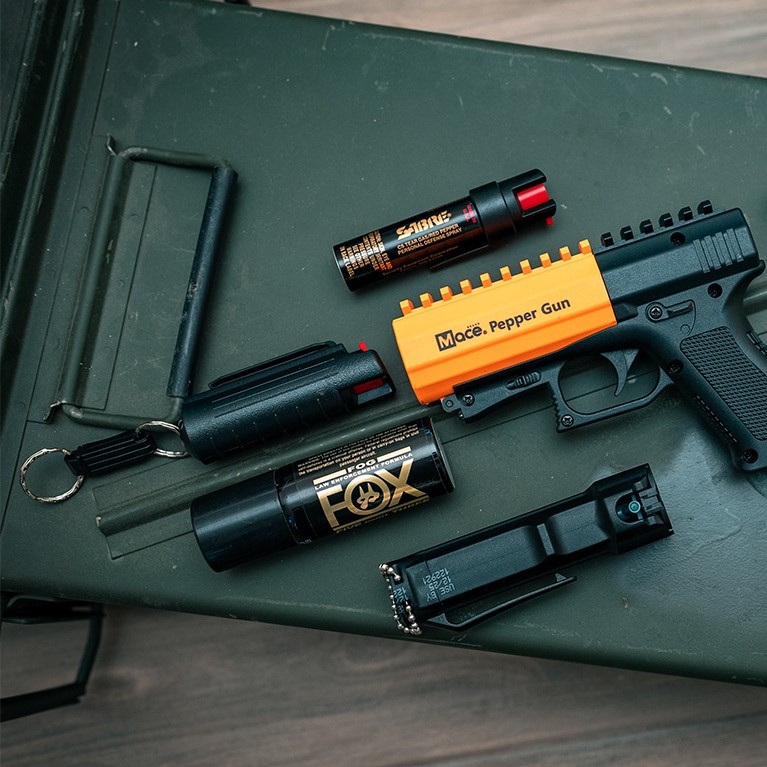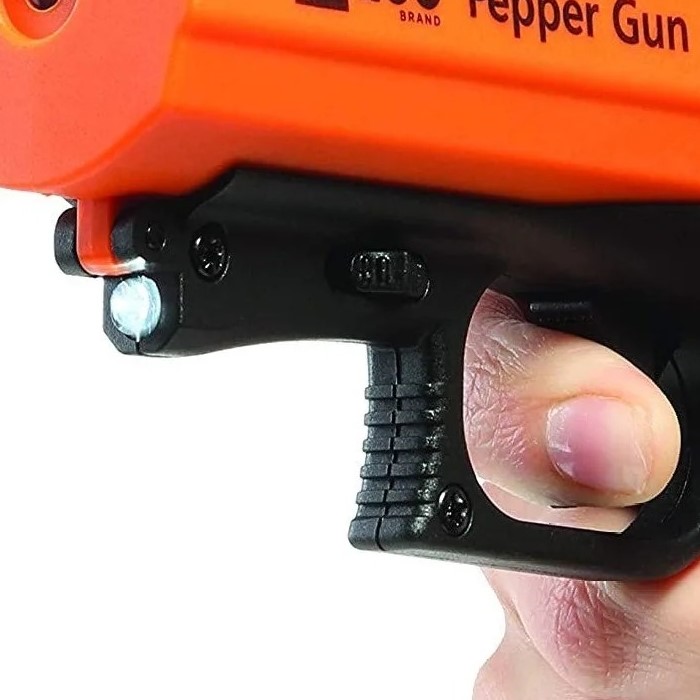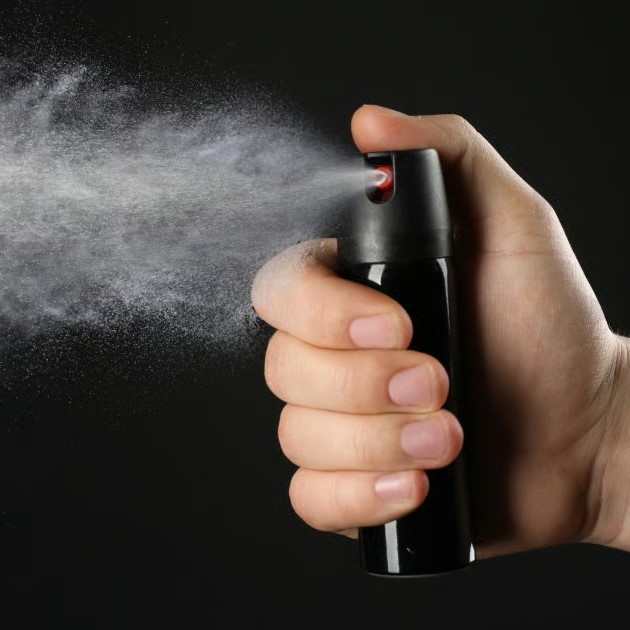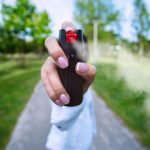Introduction: The Essential Question
As awareness of personal safety continues to grow, many individuals are seeking effective means for self-defense. A frequently discussed option is pepper spray, which often raises the question: “Is pepper spray considered a weapon?” Understanding the classification of pepper spray is vital for anyone considering carrying it for self-defense. This article provides essential facts regarding pepper spray’s legal status as we move into 2025, helping readers navigate complicated information on self-defense tools.
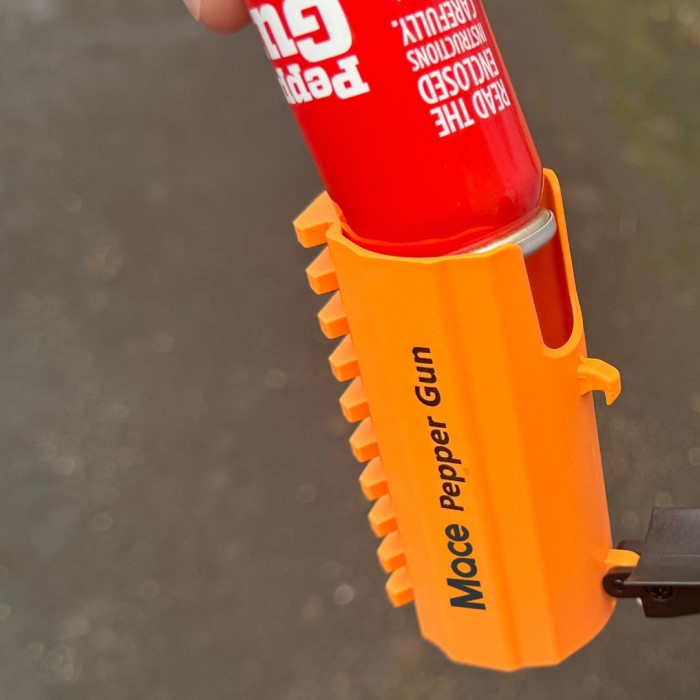
What is Pepper Spray?
To properly classify pepper spray, it is crucial to define what it is. Pepper spray is a self-defense aerosol that contains oleoresin capsicum, a natural compound derived from chili peppers. When sprayed, it causes temporary blindness, respiratory distress, and disorientation, allowing individuals to escape dangerous situations.
While pepper spray is effective in various scenarios, its classification can differ significantly based on location and jurisdiction. For this reason, understanding whether “is pepper spray considered a weapon” becomes critical. This designation impacts legal repercussions, usage rights, and purchasing regulations.
Legal Classification of Pepper Spray
Is Pepper Spray Considered a Weapon?
Is pepper spray considered a weapon? The classification of pepper spray varies widely based on legal jurisdiction. In many areas, it is classified as a non-lethal self-defense tool, while in others, it may legally be considered a weapon with specific restrictions. Understanding where your location lies on this spectrum is essential for proper compliance and responsible use.
- Self-Defense Tool vs. Weapon:
- In many states across the U.S., pepper spray is viewed primarily as a self-defense tool. This classification generally allows individuals to carry it for personal safety without facing severe legal consequences.
- Conversely, in certain jurisdictions where it is classified as a weapon, strict regulations apply. These may include age restrictions, mandatory permits, and limits on the size of the spray canister. Understanding these variations can help users avoid legal complications.
- Regulatory Differences:
- Each state has its own regulations governing pepper spray, creating a patchwork of laws that can be confusing. Some states impose strict guidelines on size, effectiveness, and even types of sprays used. A thorough understanding of local law is crucial for individuals wanting to carry pepper spray legally.
- International Perspectives:
- While the U.S. tends to have more lenient regulations surrounding pepper spray, other countries have adopted much stricter views. In certain jurisdictions around the world, carrying pepper spray can lead to legal troubles such as fines or imprisonment. If you plan to travel internationally, researching the laws regarding pepper spray in your destination is vital.
What States is Pepper Spray Illegal In?
In the U.S., several states impose regulations or outright bans on pepper spray. Being aware of these restrictions can prevent significant legal issues. It’s essential to stay informed about which states may enforce these laws:
- States with Stricter Regulations:
- California: While it is generally legal, restrictions exist on the size of the canister. Specific requirements must also be adhered to regarding performance standards.
- New York: Obtaining a license or permit is necessary to purchase and possess pepper spray, making it less accessible.
- Hawaii: The state imposes strict regulations, limiting the size and usage of pepper spray.
- States Where it’s Illegal:
- A handful of municipalities and states have outright bans on pepper spray possession. For example, in cities like Annapolis, Maryland, carrying pepper spray can lead to legal penalties. Always verify local ordinances to ensure compliance with the law.
- Permits and Licensing:
- In multiple states, obtaining a permit before purchasing or carrying pepper spray is required. This regulation ensures users are familiar with their responsibilities and the legalities surrounding its usage. Understanding this aspect will avoid issues during law enforcement encounters.
Understanding the Safety and Usage of Pepper Spray
Safe Handling of Pepper Spray
Familiarize Yourself
- Understand the Mechanics:
- Take the time to learn about your specific pepper spray canister, including how it creates the aerosol spray. Familiarity with the components—such as the safety latch, nozzle, and trigger—will prepare you for quick use in emergencies.
- Understand the difference between various types of sprays, such as stream, gel, or fog. Knowing when and why to use each type can enhance your effectiveness in critical situations.
- Practice Aiming Techniques:
- Learn proper aiming techniques to target the assailant’s face, especially the eyes and nose, which are most sensitive to the chemical components.
- Engaging in practice aimed at maintaining a steady hand under pressure is important, as accuracy can significantly affect the outcome of a confrontation.
- Activate and Deploy:
- Practice activating the spray in controlled environments. This familiarity reduces hesitation during emergencies, allowing for a quicker, more effective response.
- Ensure you know how to effectively deploy the spray from various positions. For instance, learn how to use it while standing, sitting, or moving, as real-life scenarios may vary.
Training and Practice
- Consider Self-Defense Classes:
- Look for local self-defense classes that incorporate training on pepper spray usage. These courses often cover legal and ethical considerations along with practical application techniques.
- Joining a self-defense class enhances your overall preparedness, combining physical techniques with the knowledge of when it’s appropriate to deploy your pepper spray.
- Participate in Simulated Scenarios:
- Engage in training that incorporates real-world scenarios, enabling you to practice decision-making under stress. This kind of training helps you develop confidence in your ability to respond effectively when needed.
- Many self-defense programs also simulate confrontational situations where pepper spray would be appropriate, providing hands-on experience.
- Learn from Experts:
- Seek guidance from trained professionals who can provide tips on improving overall safety and self-defense strategies. Expert instruction ensures you receive high-quality information that applies to real-world situations.
- Additionally, connecting with experienced peers can yield valuable insights and encouragement as you build your self-defense skills.
Storage and Accessibility
- Choose the Right Storage Location:
- Store your pepper spray in a location that is easy to access quickly, such as a designated pocket in a bag or an accessible clip on your belt. The goal is to ensure you can retrieve it rapidly if necessary.
- Avoid locations that are difficult to reach or where the spray may become misplaced during an emergency.
- Ensure Security Against Accidental Discharge:
- While accessibility is crucial, make sure your canister is secure enough to prevent accidental spraying. Many pepper spray canisters come with safety latches or caps that prevent unintentional activation.
- Consider location factors, such as children or pets, to ensure that the spray is kept in a safe area to avoid potential accidents.
- Regular Maintenance Checks:
- Periodically check your pepper spray to ensure it is functioning properly. This includes testing the spray mechanism, inspecting for any signs of damage, and checking that the safety feature engages correctly.
- Additionally, examine the expiration date, as pepper sprays can lose effectiveness over time. Be proactive in replacing expired canisters to ensure you are always prepared.
What Kind of Weapon is Pepper Spray?
- Non-Lethal Self-Defense Tool:
- Generally, pepper spray is classified as a non-lethal self-defense tool. While it can incapacitate an assailant temporarily, its design is not intended to cause permanent harm. Instead, it serves to give the defender a chance to escape.
- Comparisons to Other Weapons:
- Unlike firearms or knives, pepper spray provides individuals with a means to defend themselves without the risk of lethal consequences. This attribute makes it an appealing option for those who prefer to avoid more harmful weapons while still being capable of protecting themselves.
FAQs about Pepper Spray
Is pepper spray counted as a weapon?
Yes, in certain jurisdictions, pepper spray is classified as a weapon, which means users must adhere to specific legal restrictions. Always verify local laws to ensure compliance.
Can I sue someone for pepper spraying me?
Yes, if someone uses pepper spray unlawfully against you, it may be possible to sue them for damages. Consulting an attorney can provide valuable guidance on your legal options.
Conclusion
Understanding whether “is pepper spray considered a weapon” is essential for anyone considering its use as a self-defense mechanism. The classification of pepper spray varies based on location, influencing regulations, legalities, and safety considerations. As we move into 2025, being informed of local laws and guidelines is essential for responsible usage.
By familiarizing yourself with pepper spray’s operation and legal status, you empower yourself with the knowledge necessary to enhance personal safety. Always stay updated on the latest regulations and training to ensure you are prepared for any situation. Engaging actively with your local community and legal resources can further enhance your confidence and awareness, allowing you to navigate potential threats effectively and responsibly. In a world where personal safety is a growing concern, being informed is your best defense.
